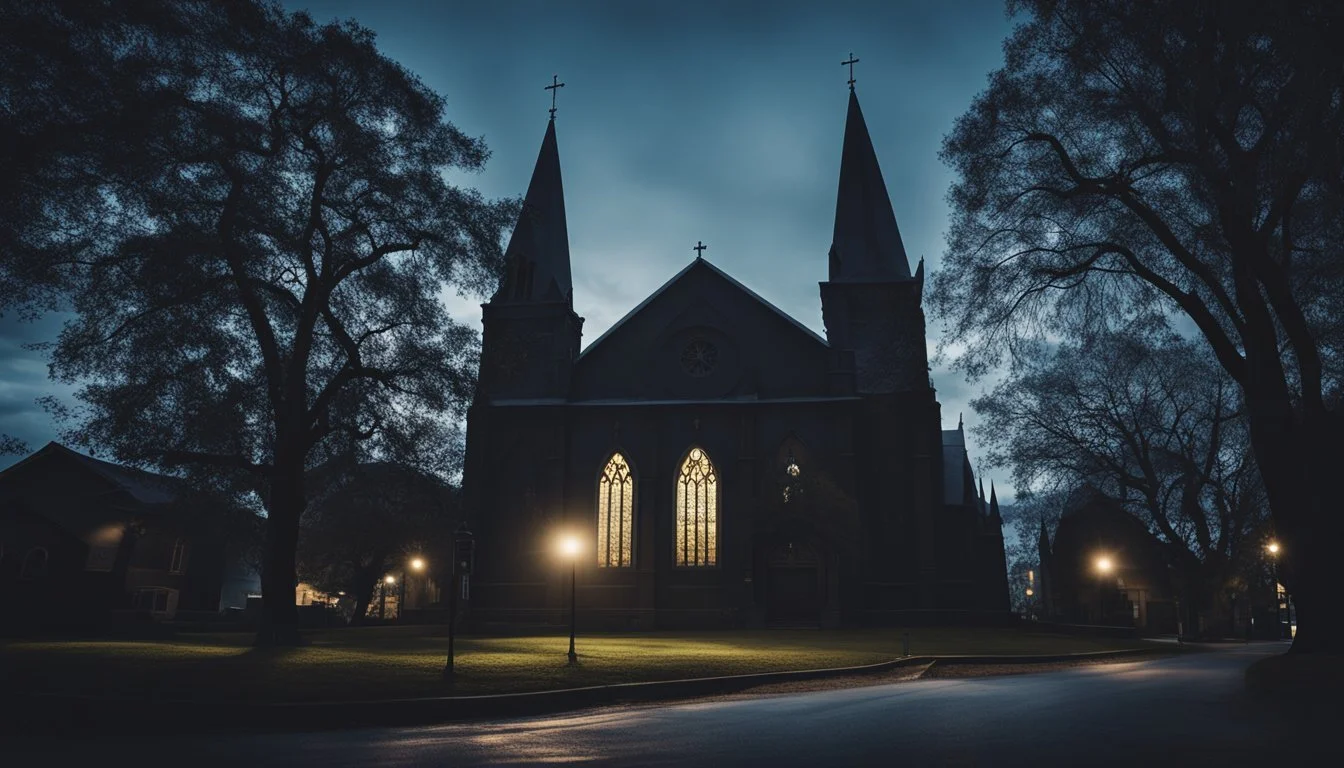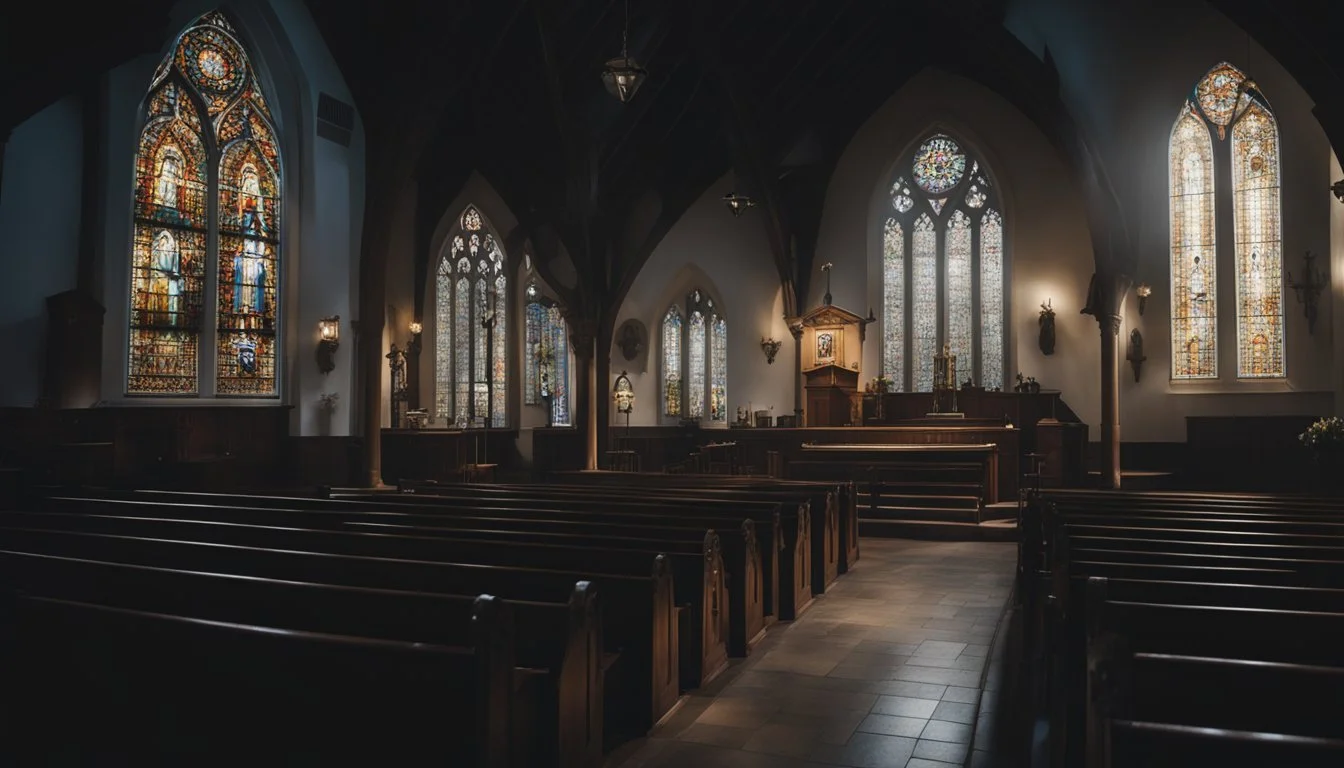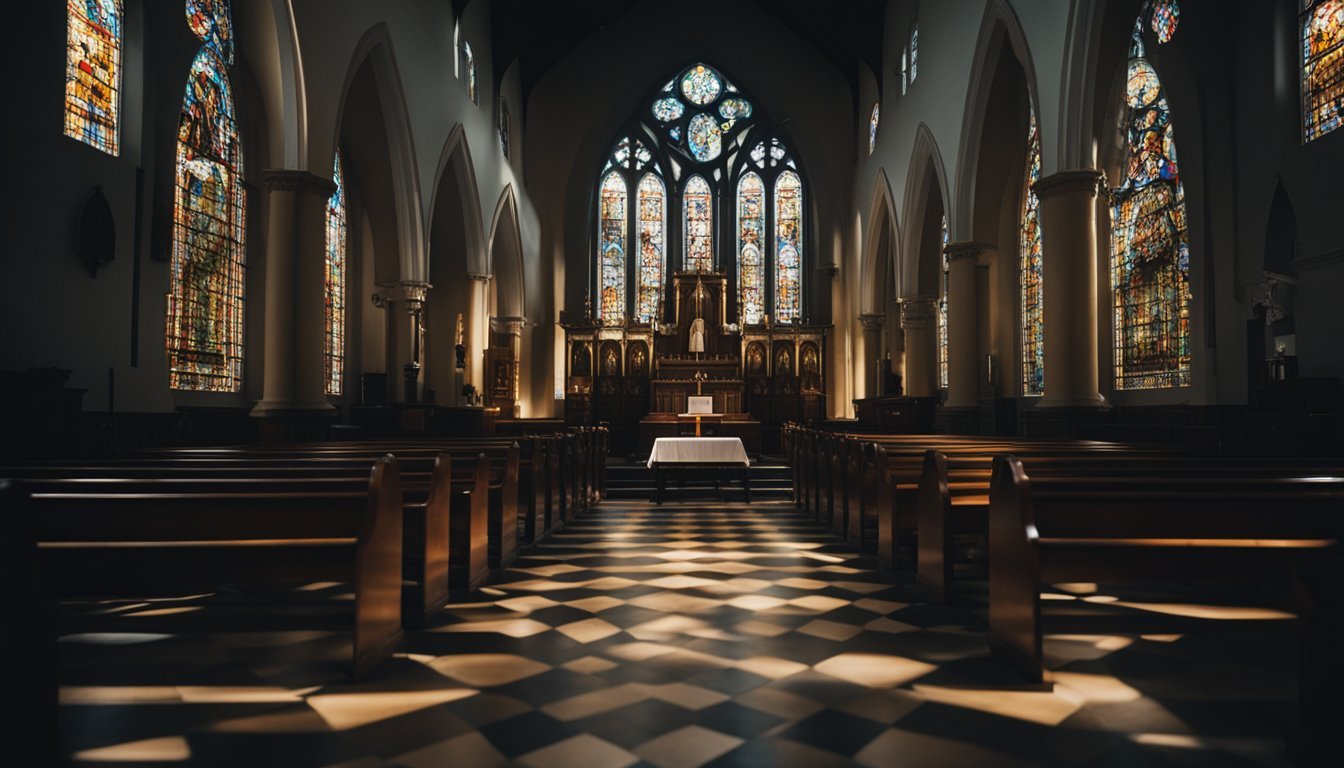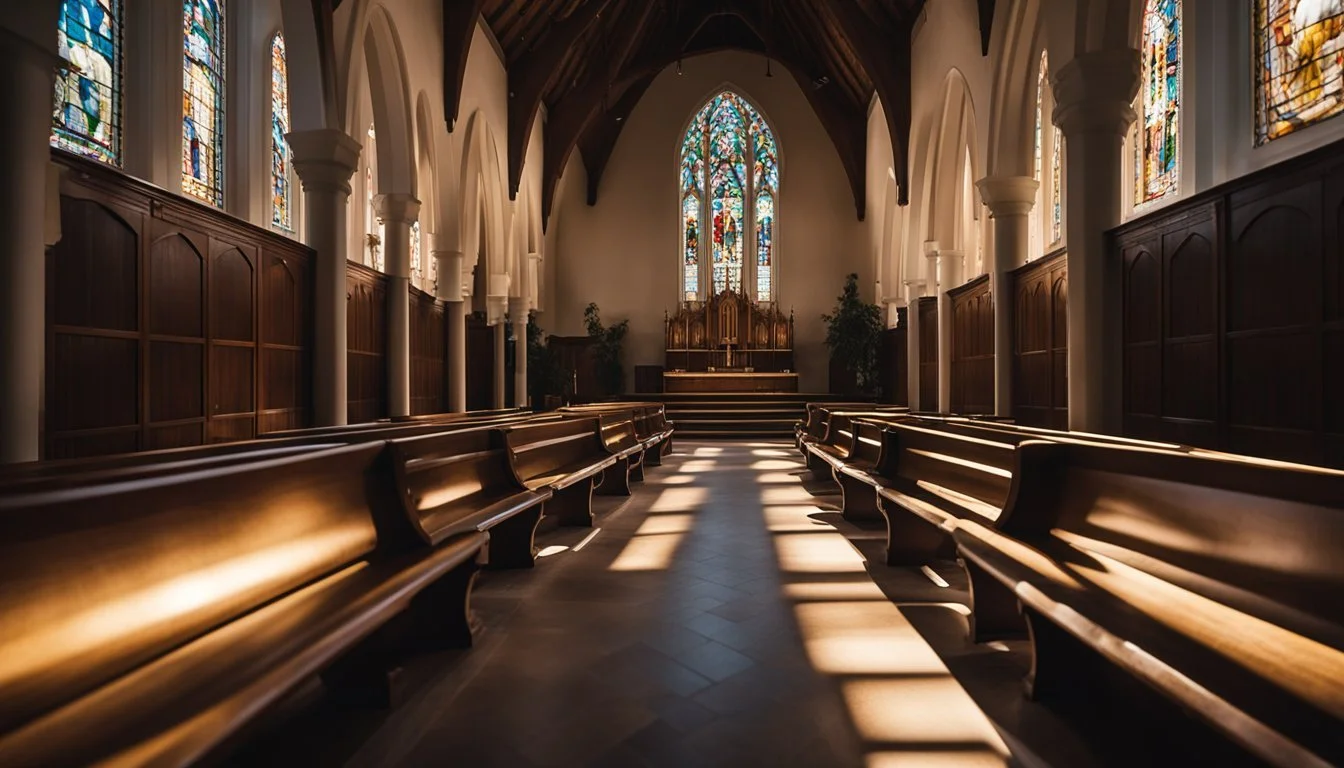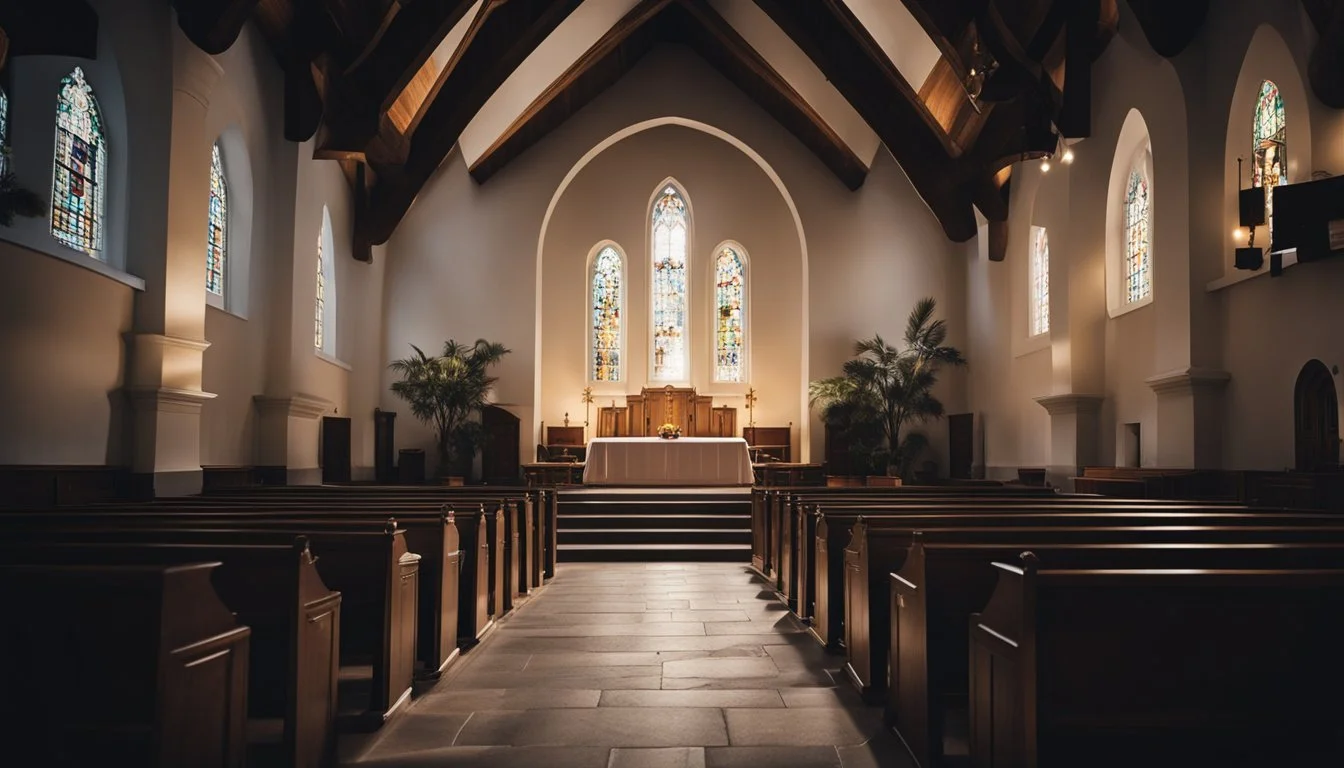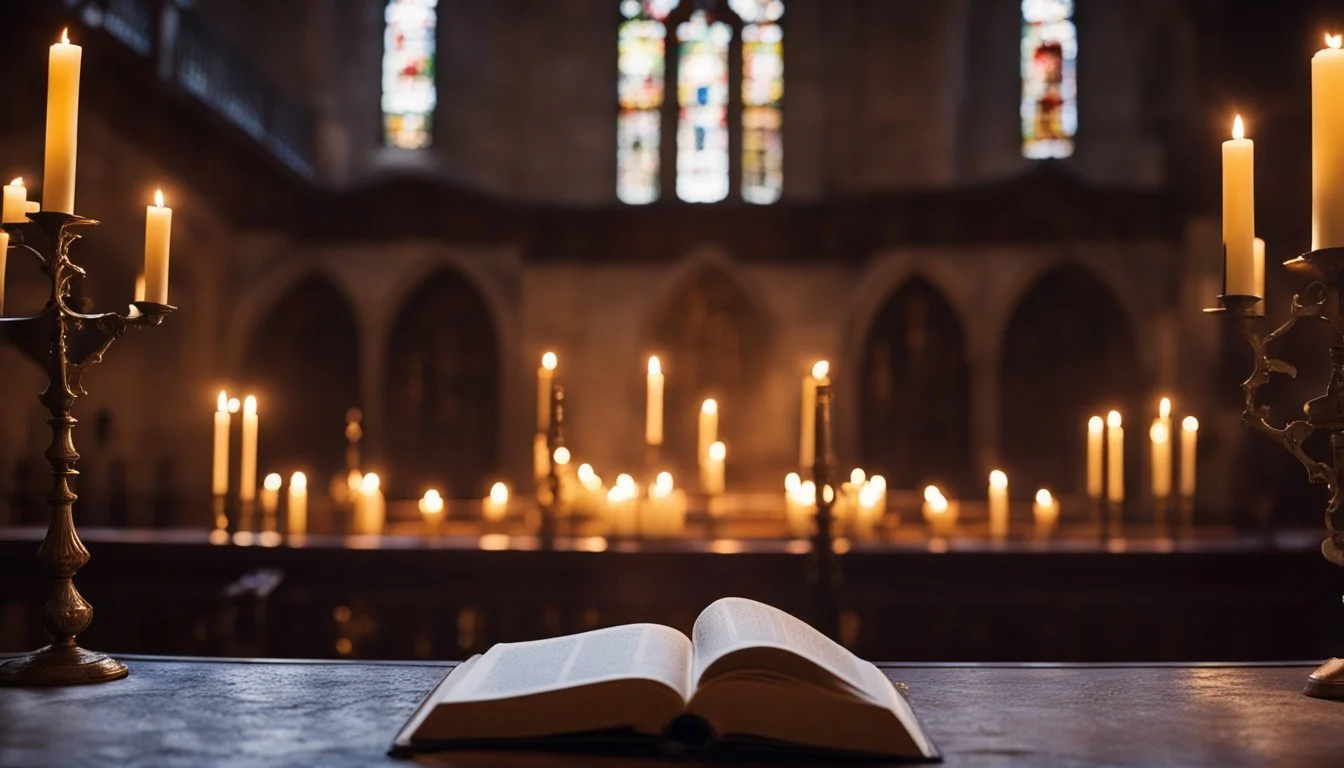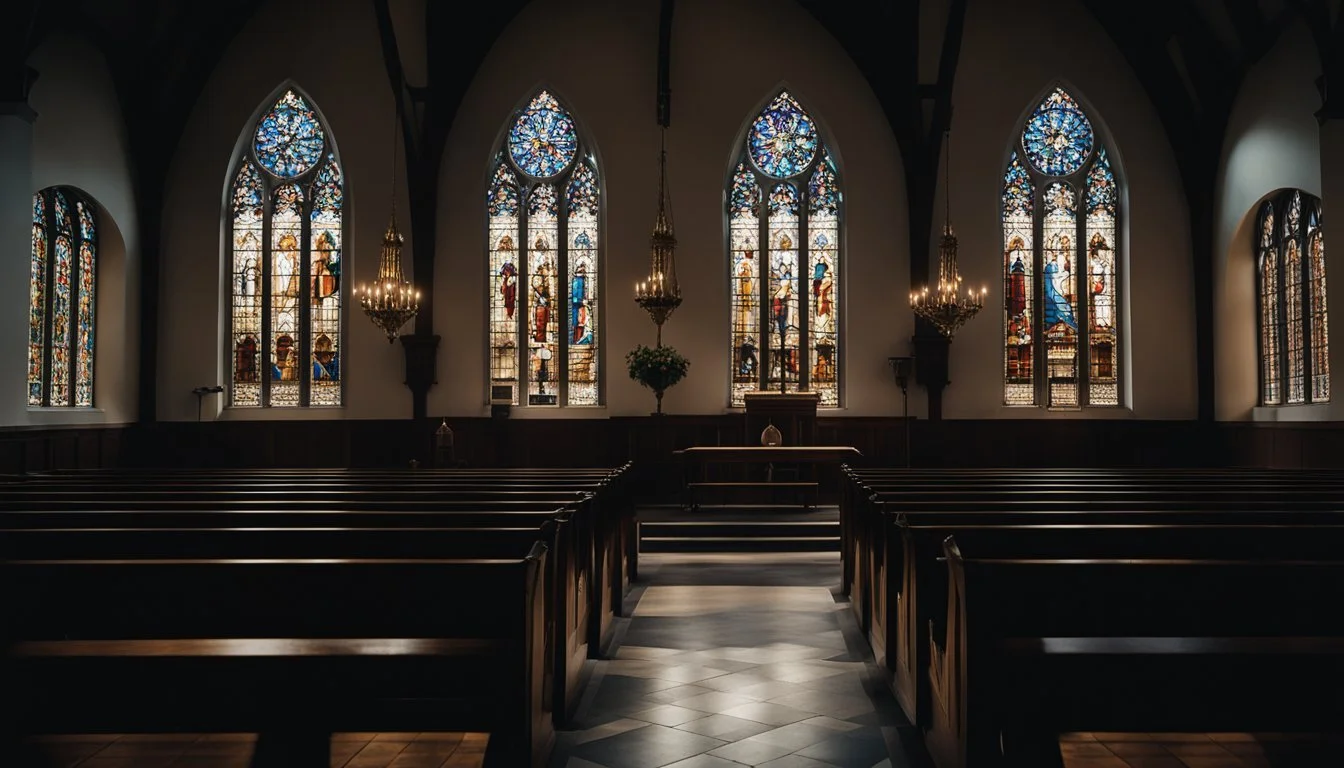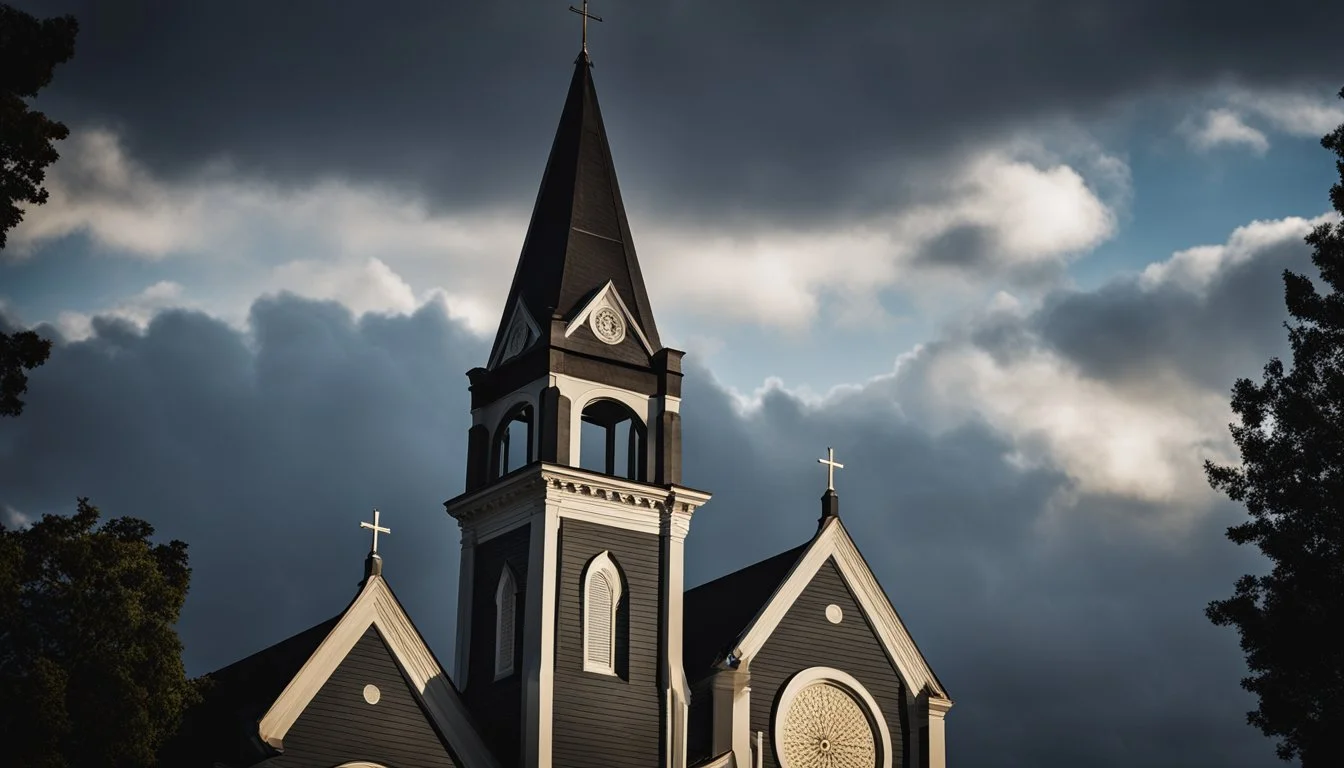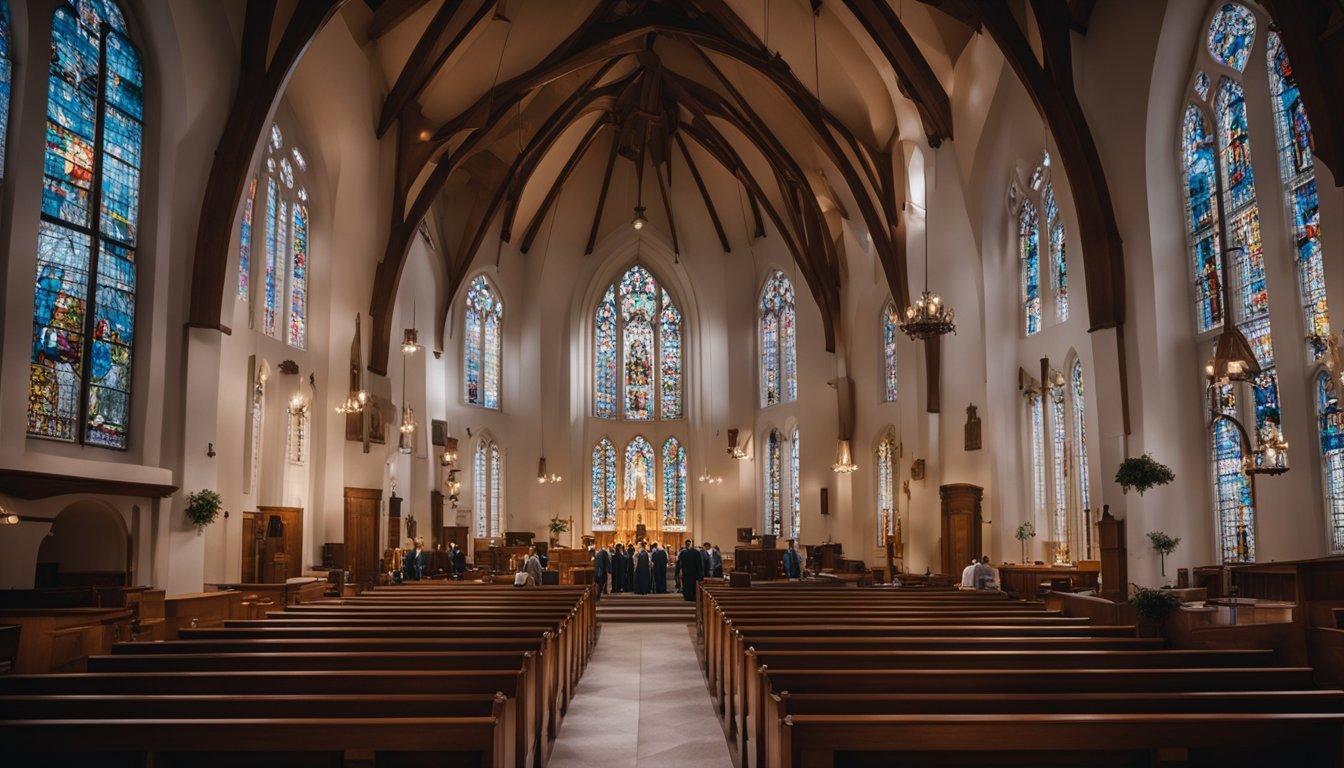8 True Crime Documentaries About Episcopalian Churches
Intriguing Cases Unveiled
True crime documentaries have captivated audiences with their in-depth exploration of real-life events and complex characters. When these narratives involve religious institutions like Episcopalian churches, they offer a unique perspective into the intersection of faith, power, and crime.
What drives interest is the uncovering of hidden stories and the investigation into how such crimes could occur within trusted communities. This article delves into eight true crime documentaries that focus on Episcopalian churches, providing a compelling look at these gripping tales.
1) The Episcopal Mysteries
In the world of true crime, Episcopalian churches have sometimes been at the center of fascinating and intricate mysteries. These documentaries explore various aspects of crime, faith, and the human experience within the Episcopal community.
One notable example is the case of Rev. Hillhouse Buel, who built Emmanuel Episcopal Church in Cumberland, Maryland, over a network of tunnels. These tunnels were used to help runaway slaves during the 1840s. This story reveals how religious leaders sometimes engage in clandestine activities for noble causes.
Another intriguing case involves Father Marty Davis, a 35-year-old Episcopalian priest from Chattanooga, TN. As the first openly gay priest in the area, his unsolved murder shocked the community. His involvement in numerous charitable endeavors adds a layer of complexity to his life and tragic death.
Each of these stories provides a unique glimpse into the challenges and moral dilemmas faced by those within the Episcopal Church. These documentaries not only shed light on specific crimes but also explore broader themes of faith, justice, and community.
To learn more about these captivating tales, one can explore various external sources that delve deeper into these church mysteries.
2) Sins of the Pious: The Hidden Truth of St. Mark's
"Sins of the Pious: The Hidden Truth of St. Mark's" (2023) uncovers the profound and disturbing events within the Episcopalian community of St. Mark's Church.
Through compelling interviews and investigative footage, this documentary reveals a series of concealed crimes involving church leaders. Financial misconduct and moral betrayals are brought to light.
This film provides an intricate look at how trust within a religious institution can be shattered. The filmmakers emphasize the psychological and sociological impacts on the congregation.
For more information, visit IMDB.
3) Faith and Deception: Inside the Church Scandal
The documentary "Faith and Deception: Inside the Church Scandal" (2023) explores a deeply troubling chapter in the history of an Episcopalian church. The film uncovers a web of deceit involving key members of the clergy and church administration.
It begins by documenting initial complaints from parishioners about mishandled funds.
As the investigation deepens, allegations of sexual misconduct surface. These claims involve high-ranking church officials, whose abuse of power went unchecked for years. The documentary includes compelling interviews with survivors and internal whistleblowers.
The church’s efforts to cover up the scandal are meticulously detailed. Documents and emails reveal a pattern of obstruction and moral failure within church leadership. This serves as a poignant reminder of the vulnerabilities present in religious institutions.
Read more about "Faith and Deception: Inside the Church Scandal"
4) Silent Prayers: The Untold Stories
"Silent Prayers: The Untold Stories" (2023) provides an in-depth look at the less-discussed issues within some Episcopalian churches.
The documentary brings to light hidden stories of misconduct and its far-reaching impact on the community.
It highlights personal accounts from victims, shedding light on how these individuals have coped. Their narratives are shared in a respectful and sensitive manner.
Watching this film reveals the layers of secrecy often associated with religious institutions. The documentary does not just focus on the transgressors but also on the systemic issues that allow such acts to occur.
It also emphasizes the importance of transparency and accountability within the church structure, aiming to foster a more open dialogue about these critical issues.
For more information on "Silent Prayers: The Untold Stories," visit IMDB.
5) The Holy Taboo: Secrets of the Clergy
This documentary explores the hidden and controversial aspects of leadership within Episcopalian churches.
It examines certain incidents involving clergy members, bringing to light issues that were previously hushed up.
With a focus on integrity and transparency, the documentary interviews both church officials and former congregants.
The film aims to provide a balanced and factual perspective on these sensitive topics.
By dissecting historical and recent events, it reveals discrepancies between church teachings and actions.
More information on The Holy Taboo: Secrets of the Clergy (2023).
6) Crossed Paths: The Double Lives of Priests
True crime stories often expose the hidden facets of seemingly upright individuals, and "Crossed Paths: The Double Lives of Priests" does just that. This documentary uncovers cases where priests, trusted spiritual leaders, led clandestine lives that shocked their congregations and communities.
The film delves into several cases involving Episcopalian priests who committed crimes while maintaining their pastoral duties.
One notable case features a priest involved in financial fraud, siphoning funds from the church for personal gain. The deception went unnoticed for years, revealing the ease with which authority figures can manipulate trust.
Another story focuses on a priest who engaged in criminal activities linked to narcotics. His fall from grace highlights the disparity between his public persona and secret dealings, mirroring the double lives led by many such individuals.
The documentary also sheds light on cases of abuse within the church, where priests held positions of power and exploited their authority. These stories underscore the profound betrayal felt by their victims and the broader community.
Each narrative is meticulously documented through interviews, archival footage, and expert analysis, providing a comprehensive look at these multifaceted lives. These accounts are not only compelling but also serve as cautionary tales about misplaced trust and the complexities of human behavior.
7) Altar of Lies: Cracking the Episcopal Code (2022)
"Altar of Lies: Cracking the Episcopal Code" is a gripping documentary focusing on the hidden scandals within the Episcopal Church. The film explores labyrinthine schemes and the misuse of power by certain church members.
Detailed interviews with insiders and experts reveal a pattern of deception and manipulation. The documentary examines how trust has been broken and faith exploited.
Through meticulous research and compelling storytelling, viewers are taken on a journey to uncover the truth behind the closed doors of these religious institutions.
This film sheds light on the complex relationship between spirituality and institutional corruption. It asks tough questions about accountability and the need for reform within the church.
8) Piety and Peril: The Church Behind Closed Doors
This documentary explores the dark underbelly of an Episcopalian church, uncovering secrets kept hidden from the public eye.
It examines the lives of individuals affected by the actions and decisions taken by church authorities. Viewers are taken on a journey through testimonies and evidence, shedding light on the duality of piety and peril within the religious community.
The film integrates interviews with former church members, clergy, and experts, building a narrative that scrutinizes the balance between faith and accountability.
Historical records and personal accounts are combined to highlight systemic issues and the impact on those seeking solace and support from their church.
For more information on "Piety and Peril: The Church Behind Closed Doors" (2020), visit IMDb.
History Of Episcopalian Churches
The Episcopal Church, rooted in the Church of England, has a significant historical and cultural influence, particularly in the United States. Key events include its colonial origins and independent reorganization post-American Revolution.
Origins And Development
The Episcopal Church originated from the Church of England and was planted in the American colonies during the 17th and 18th centuries.
Having maintained apostolic succession and its Anglican heritage, the church took shape significantly post-Revolution, reorganizing apart from the British crown.
The first Eucharist celebrations in North America were in 1579, near San Francisco. The church's establishment was politically and socially influenced by its connections to the Crown.
Key Events In Episcopalian History
In 1789, the Episcopal Church formally organized at the General Convention in Philadelphia, marking its official independence from the Church of England.
During the 19th and early 20th centuries, the church expanded, characterized by its role within the sociopolitical landscape of the nation.
Significant moments include addressing its historical complicity and economic benefits from the slave trade, especially highlighted in recent General Conventions. In 2006, resolutions prompted the church to study and address these historical injustices.
Common Themes In True Crime Documentaries
True crime documentaries often explore the darker sides of human nature and societal structures through detailed examination of criminal acts and the psychological motivations behind them.
Crime Elements In Religious Contexts
True crime documentaries sometimes uncover crimes connected to religious institutions, including Episcopalian churches. These films often investigate instances of fraud, abuse, or even murder. The sacred settings and the involvement of trusted community leaders add layers of betrayal and heightened public interest.
Discussion of motivations often highlights misuse of power and trust within these religious settings. Investigators and filmmakers aim to peel away the facade of piety to reveal underlying corruption and moral failures.
Such documentaries might feature interviews with victims, law enforcement, and experts in religious studies to provide a comprehensive picture of the events and their impacts.
Psychological Insights
Delving into the minds of perpetrators is a significant aspect of true crime documentaries. Psychological profiles of criminals provide viewers with a deeper comprehension of the factors that drive individuals to commit heinous acts. Documentaries often portray these individuals as complex characters shaped by a combination of personal history, psychological disorders, and environmental influences.
In cases involving religious contexts, there might be an added dimension of exploring how religious beliefs or positions of authority influence psychological behaviors. Interviews with psychologists and criminologists help in discussing topics like narcissism, sociopathy, or the effects of trauma.
This exploration into psychological reasons provides a thorough understanding of crime dynamics beyond mere facts or events, contributing to a nuanced viewer experience.
Impact Of True Crime On Religious Communities
True crime documentaries can significantly influence religious communities by altering public perception and triggering emotional responses within congregations.
Community Reactions
Religious communities often experience heightened anxiety and introspection following a true crime documentary related to their faith. Congregants may feel betrayed or scandalized by the revelations, leading to a loss of trust in religious leadership.
In addition to emotional distress, there can be tangible actions such as increased calls for transparency and reforms. These documentaries may spur dialogues aimed at addressing underlying issues within the community and safeguarding future integrity.
Media And Public Perception
Media portrayals have a profound effect on the public’s view of religious groups featured in true crime documentaries. Coverage usually emphasizes sensational aspects, which can amplify negative stereotypes and damage reputations.
Public perception shaped by media can lead to stigmatization and isolation of the religious community involved. This external scrutiny may put additional pressure on community leaders to respond and rehabilitate their image, both internally and in the public eye.

